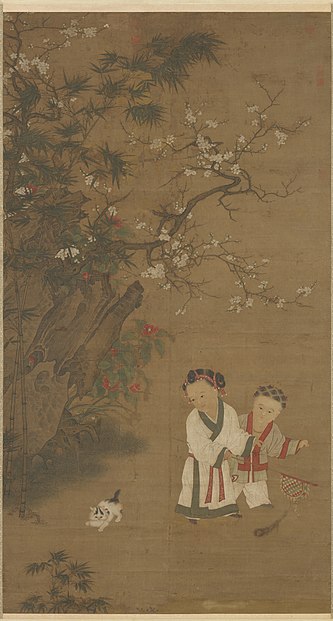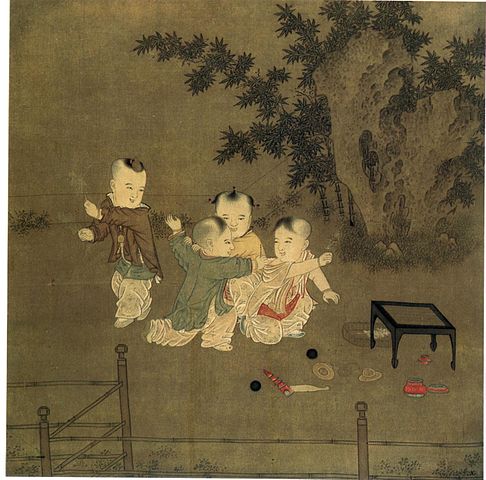
On 4 March 2020, the German-Southeast Asian Center of Excellence for Public Policy and Good Governance (CPG) will present a seminar on Human Rights: Global Concepts, Challenges and Current Issues in Thailand.
The Thammasat University Library owns several books about human rights on an international scale and in the Kingdom.
The event will take place in Room 221 of the Faculty of Law, Thammasat University, Tha Prachan campus. Students and other members of the TU community are welcome to register to attend the event at this link.
Ajarn Henning Glaser, CPG Director, will offer a presentation on What are Human Rights? with the discussant Professor Soraj Hongladarom, Ph.D. of the Center for Ethics of Science and Technology, Chulalongkorn University
The TU Library collection includes a book by Ajarn Soraj, Online Self: Externalism, Friendship and Games.
It is shelved in the General Stacks of the Pridi Banomyong Library, Tha Prachan campus. The book deals with such subjects as the philosophy of online social networks, the world wide web, and social media. The book is described by its publisher as follows:
Summary: This book investigates the emerging phenomenon of the self as it exists in the online world. It argues for an externalist conception of self and identity, one that does not depend on the continuity of consciousness of the subject. It also offers an analysis of related phenomenon such as online friendship and games based on this analysis. An outstanding feature of social networking sites such as Facebook and MySpace is that it allows for the user to put forward their “selves” or their identity onto the Internet and use the online self as an anchor to connect with any number of “friends” each of whom also has their own online selves. A number of questions then arise which are deeply conceptual and philosophical in nature: What is the metaphysical nature of this emerging online self? Is it the same or fundamentally different from the “offline” self with which we are already familiar? Since increasing numbers of people are connected to the online world, this world itself seems to be taking on a reality of its own. This much has been appreciated by a number of scholars in the field. However, there seems to be lacking a systematic study of the philosophical and metaphysical nature of the self that has become a key element in cyberspace, a key topic which this volume addresses. Apart from the problem of constitution of the online self, this volume addresses related questions concerning personal identity in the online world and scrutinizes computer games and the characteristics that they share with social networking sites. Unlike the majority of the existing literature, which discusses the topic from a more social scientific perspective, this volume fills the lacuna of a philosophical and theoretical study of the online world.

Ajarn Soraj is a professor of philosophy and Director of the Center for Ethics of Science and Technology at Chulalongkorn University in Bangkok, Thailand. He has published books and articles on bioethics, computer ethics, and the roles that science and technology play in the culture of developing countries.
He is particularly interested in how information technology is integrated in the life and world of Thai people, and especially how such integration is expressed in the use of information technology in education.
In April 2016, on the website of the American Psychological Association (APA), Ajarn Soraj told an interviewer:
The standard attitude toward philosophy and literature is that the former tries to get at the truth, and the latter is, well, fiction. (This does not mean that one cannot get at some kind of truth through literature, but that’s another matter.) But then the truth that philosophy tries to get at is not the same as what the sciences aim at getting. Philosophy is conceptual and depends so much on language and meaning. It is through philosophy that you can bring things as diverse as literature and science together in one sentence, and make the sentence really mean something substantial. That is also pretty exciting.

Other interesting speakers
Another speaker on current challenges for freedom of speech will be Phil Robertson, Deputy Director, Asia Division, Human Rights Watch (HRW).
HRW is an international non-governmental organization, headquartered in New York City, that conducts research and advocacy on human rights.[1] The group pressures some governments, policy makers and human rights abusers to denounce abuse and respect human rights, and the group often works on behalf of refugees, children, migrants and political prisoners.
Also speaking on entrenchment and effectiveness of environmental rights will be Assistant Professor Naporn Popattanachai, Ph.D., Faculty of Law, Thammasat University
Dr. Naporn earned a PhD in Law at the Nottingham Law School, Nottingham Trent University, United Kingdom.
Ajarn Naporn’s thesis was on Regional cooperation addressing marine pollution from land-based activities: an interpretation of article 207 of the Law of the Sea Convention focusing on monitoring, assessment, and surveillance of the pollution.
Speaking on Human Trafficking Trends in Southeast Asia will be Jessica Wong Dewangga, Regional Program Human Trafficking/Smuggling of Migrants, UNODC Southeast Asia and the Pacific (TBC)
UNODC Southeast Asia and the Pacific has a team of over 200 providing advice and technical assistance related to the rule of law, non-traditional security threats, law enforcement, criminal justice and drug-related supply and health issues. The Regional Office for Southeast Asia and the Pacific in Bangkok is home to a multi-disciplinary team of 50 regional program managers, advisors and administrators working with, and supporting, Member States and regional organizations, and aligned country offices.
Also offering a presentation on human rights protection in the South of Thailand will be Assistant Professor Srisompob Jitpiromsri, Ph.D., Prince of Songkla University, Director, Deep South Watch.
The TU Library owns some books by Ajarn Srisompob, including Experiences of peacebuilding: learning the peace processes in contemporary conflicts.
It is shelved in the Pridi Banomyong Library.
Human rights are considered to refer to basic rights and freedoms to which all humans are entitled, including civil and political rights, such as the right to life and liberty, freedom of expression, and equality before the law; and economic, social and cultural rights, including the right to participate in culture, the right to food, the right to work, and the right to education. Some thoughts on human rights:
- In defending the great cause of human rights, I wish to derive the assistance of all religions and of all parties.
William Lloyd Garrison, “To The Public”, The Liberator, January 1, 1831.
- I know nothing of man’s rights, or woman’s rights; human rights are all that I recognise.
Sarah Grimké, Letter 15 (20 October 1837).
- The idea of human rights and freedoms must be an integral part of any meaningful world order. Yet, I think it must be anchored in a different place, and in a different way, than has been the case so far. If it is to be more than just a slogan mocked by half the world, it cannot be expressed in the language of a departing era, and it must not be mere froth floating on the subsiding waters of faith in a purely scientific relationship to the world.
Václav Havel, Liberty Medal acceptance speech at Independence Hall, Philadelphia, Pennsylvania (4 July 1994)

(All images courtesy of Wikimedia Commons)
